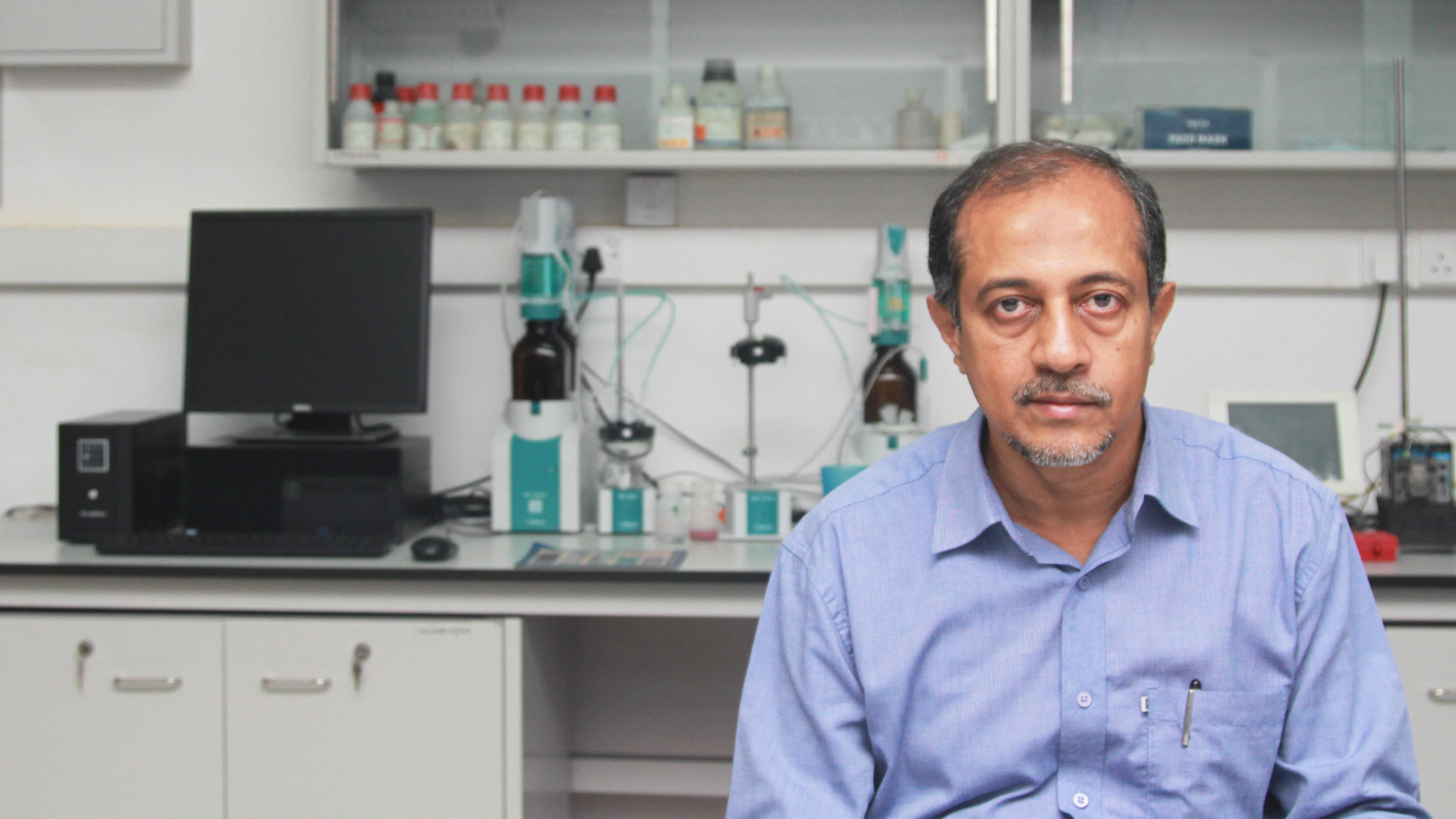Associate Research Professor
Nazrim Marikkar
Food Chemistry

Background
Professor Nazrim Marikkar, currently works as the Head of the Food Chemistry Programme at the National Institute of Fundamental Studies, Kandy. He holds a BSc (Hons) in Chemistry from University of Colombo and a PhD in Food Biochemistry from University Putra Malaysia. He is a professional member of the Institute of Chemistry, Ceylon and Malaysian Institute of Food Technology. He previously served as Senior Lecturer at University Putra Malaysia and Assistant Professor at International Islamic University, Malaysia. His research interest mainly focuses on food authentication and functional foods to mitigate the effect of non-communicable diseases. He has been successful in securing research grants from CARP Sri Lanka and the Ministry of Higher Education, Malaysia. The funding has helped him to carry out various research work on food authentication and development of anti-diabetic foods. He has supervised one PhD and eleven Master’s degree candidates. He communicated most of his research findings through peer-reviewed articles and conference proceedings. To date, Prof. Marikkar has edited one book, authored seven book chapters and contributed more than 90 research articles in reputed academic journals. Other than these, he has more than sixty-five other communications in conference proceedings. Prof. Marikkar has been a recipient of several research awards including highly cited paper award in 2025 by the National Science Foundation of Sri Lanka, a Bronze medal from Malaysia Technology Expo held in 2013, a Silver medal from Research Invention, Innovation Exhibition of UITM held in 2012, a Gold medal from PRPI research exhibition of UPM held in 2011, and Presidential Award for Scientific Research awarded in 2010 by the President of the Democratic Socialist Republic of Sri Lanka.
Contact
Prof. Nazrim Marikkar
National Institute of Fundamental Studies
Hanthana Road, Kandy (20000) Sri LankaResearch Interest
Prof Marikkar’s current research interests include to investigate agricultural by-products and under-utilized fruits resources for their anti-diabetic properties. He investigates the potential uses of Stevia reboudiana as natural sweetener to replace fermentable sugars in food consumption. These efforts will lead to formulate future foods useful for diabetic management in Sri Lanka. He also investigates novel analytical approaches for food authentication to counter food fraud existing in the commercial world. This will ensure the quality and authenticity of food products to safeguard consumers.